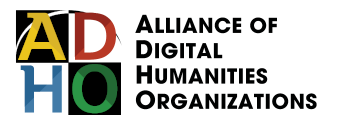The Japanese Association for Digital Humanities is pleased to announce its sixth annual conference, to be held at Doshisha University, Kyoto, Japan, September 11-12, 2017.
The conference will feature posters, papers and panels. We invite proposals globally on all aspects of digital humanities, and especially encourage papers treating topics that deal with practices that aim to cross borders, for example, between academic fields, media, languages, cultures, organizations, and so on, as related to the field of digital humanities.
As creation of research data — collection, feature extraction, annotation, and organization — is a seminal component of all DH projects, means and modes of this data-creation have been handled in various ways as digital approaches have evolved. Recently, the focus on methods of collaborating in data creation has been renewed with the rapid growth of projects that are crowd-sourced on the Web. The re-emergence of data creation based on this approach provides a wider range of data, as it has the potential to include contributors who are not only researchers, but also members of the general public. Such a new possibility should be taken due advantage of, especially given the difficult situation for the humanities fields in the academy. This year we strongly encourage you to submit proposals about methods and problems in collaborative approaches for data collection, especially crowd sourcing and other forms of public engagement. With this as our suggested central focus, we nonetheless welcome papers on a broad range of DH topics. For example:
Research issues, including data mining, information design and modeling, software studies, and humanities research enabled through the digital medium; computer-based research and computer applications in literary, linguistic, cultural and historical studies, including electronic literature, public humanities, and interdisciplinary aspects of modern scholarship. Some examples might include text analysis, corpora, corpus linguistics, language processing, language learning, and endangered languages; the digital arts, architecture, music, film, theater, new media and related areas; the creation and curation of humanities digital resources; the role of digital humanities in academic curricula; The range of topics covered by Digital Humanities can also be consulted in the journal Digital Scholarship in the Humanities (http://dsh.oxfordjournals.
Abstracts should be of 500-1000 words in length in English, including title.
Please submit abstracts on the open conference system for conference below by May 8, 2017.
http://www.jadh.org/confsys/
Presenters will be notified of acceptance on 31 May 2017.
Type of proposals:
1. Poster presentations: Poster presentations may include work-in-progress on any of the topics described above as well as demonstrations of computer technology, software and digital projects. A separate poster session will open the conference, during which time presenters should be on-hand to explain their work, share their ideas with other delegates, and answer questions. Posters will also be on displayed at various times during the conference, and presenters are encouraged to provide material and handouts with more detailed information and URLs.
2. Short papers: Short papers are allocated 10 minutes (plus 5 minutes for questions) and are suitable for describing work-in-progress and reporting on shorter experiments and software and tools in early stages of development.
3. Long papers: Long papers are allocated 20 minutes (plus 10 minutes for questions) and are intended for presenting substantial unpublished research and reporting on significant new digital resources or methodologies.
4. Panels: Panels (90 minutes) are comprised of either: (a) Three long papers on a joint theme. All abstracts should be submitted together with a statement, of approximately 500-1000 words, outlining the session topic and its relevance to current directions in the digital humanities; or (b) A panel of four to six speakers. The panel organizer should submit a 500-1000 words outline of the topic session and its relevance to current directions in the digital humanities as well as an indication from all speakers of their willingness to participate.
Contact:
Please direct enquires about any aspect of the conference to:
conf2017 [ at ] jadh.org
Program Committee:
* Paul Arthur (Australian National University, Australia)
* James Cummings (University of Oxford, UK)
* J. Stephen Downie (University of Illinois, USA)
* Øyvind Eide (University of Cologne and University of Passau, Germany)
* Neil Fraistat (University of Maryland, USA)
* Makoto Goto (National Institute for Humanities, Japan)
* Shoichiro Hara (Kyoto University, Japan)
* Jieh Hsiang (National Taiwan University, Taiwan)
* Asanobu Kitamoto (National Institute of Informatics / CODH, Japan) , Chair
* Maciej Eder (Pedagogical University of Kraków, Poland)
* A. Charles Muller (University of Tokyo, Japan)
* Hajime Murai (Tokyo Institute of Technology, Japan)
* Kiyonori Nagasaki (International Institute for Digital Humanities, Japan)
* John Nerbonne (University of Groningen, Netherlands)
* Geoffrey Rockwell (University of Alberta, Canada)
* Susan Schreibman (National University of Ireland Maynooth, Ireland)
* Masahiro Shimoda (University of Tokyo, Japan)
* Raymond Siemens (University of Victoria, Canada)
* Keiko Suzuki (Ritsumeikan University, Japan)
* Takafumi Suzuki (Toyo University, Japan)
* Tomoji Tabata (Osaka University, Japan)
* Toru Tomabechi (International Institute for Digital Humanities, Japan)
* Kathryn Tomasek (Wheaton College, USA)
* Christian Wittern (Kyoto University, Japan)
* Taizo Yamada (University of Tokyo, Japan)
